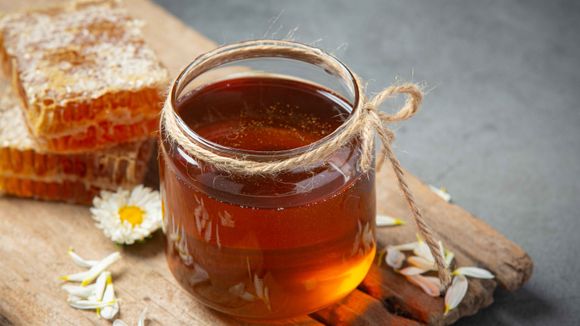How Natural Antibiotics Work
Antibiotics in the form of drug medications have saved lives since penicillin was first discovered in the 1940s.
But before that, antibiotic substances existed in natural form.
Now that resistance to conventional antibiotics is a serious global problem, it makes sense to explore the possibilities and benefits of using natural antimicrobial agents for certain types of bacterial infections. The question is how much we can rely on natural antibiotics and in which cases.
Some plant extracts, essential oils, and even foods have antibiotic properties. For example, some food and vegetable extracts can prevent the growth of bacteria in food. [ref. 1]
Sometimes these properties extend beyond food and can help in personal health care and hygiene. Cranberry extract, for example, contains both antibacterial and antioxidant compounds, making it an effective natural remedy for urinary infections. [ref. 2]
Herbs can also be antibiotics and some of nature's most beneficial gifts. In one study of samples from 58 Chinese plants, 23 of them were found to have antibacterial properties and 15 to have antifungal properties. [ref. 3]
Various plant substances known as phytochemicals can have potential antibiotic action, for example:
- Phenols
- Polyphenols
- Terpenoids
- Essential oils
- Alkaloids
- Lectins
- Polypeptides
Let's see in which foods, herbs and other natural products they can be contained and what is the evidence of their positive effects.
Honey

Honey first became known for its medicinal properties around 400 BC. It was used as a topical cream to heal wounds, treat infections and soothe burns.
Although we may not use honey this way today, some research has actually shown that using honey in surgical wound dressings can promote better wound healing and reduce scarring.
In terms of internal use, the properties of honey that provide medicinal benefits include:
- Hydrogen peroxide, which can prevent the growth of bacteria;
- Low pH levels, which can prevent bacterial replication, which can cause infection;
- Broad-spectrum antibacterial action, ability to prevent the growth of at least 60 different strains, including MRSA - Methicillin-resistant Staphylococcus aureus.
Please note, however, that children under 1 year of age should never be given honey. The product contains toxins that can provoke the development of botulism, a life-threatening disease.
Garlic
Research has proven properties of garlic (Allium sativum) [ref. 4], which can be both antibacterial and help prevent infections.
It has been shown that garlic concentrate can destroy bacteria in in vitro studies and is even effective against MRSA and C. albicans. These are two pathogens that are becoming more resistant to conventional pharmaceutical treatments.
Garlic has also been shown to successfully treat bacterial infections caused by Salmonella and E. coli, which can often cause urinary tract infections. [ref. 5]
Numerous modern studies confirm that garlic has certain antibiotic properties and is effective against a wide range of bacteria, fungi and viruses. [ref. 6] In addition, the antimicrobial activity of garlic is related to the presence of some bioactive compounds, among which diallyl sulfide and diallyl disulfides. [ref. 7]
Myrrh
Many people are familiar with myrrh (Commiphora myrrha), but its ability to protect against harmful microbes is not as widely known. [ref. 8]
Researchers in several studies have suggested that myrrh extract can kill several everyday pathogens, including:
- E. coli
- Staphylococcus aureus
- Pseudomonas aeruginosa
- Candida albicans
The essential oil was able to kill more than 99.9% of these types of bacteria in laboratory studies.
Clinical uses of myrrh extract include adding to formulas such as mouthwash, topical creams, and more.
Myrrh is usually well tolerated, but ingesting it can cause diarrhea. If you apply myrrh to the skin, it is possible to get a small skin rash, so it is recommended to mix it with base oil. If consumed in large doses, myrrh can cause heart problems.
Echinacea
Echinacea is a plant that grows naturally in North America, cultivated for hundreds of years by indigenous people for its medicinal properties. [ref. 9] Echinacea can be used both locally and internally.
Although echinacea may help with some types of viral infections, laboratory studies have shown that it may be effective against S. pyogenes, the bacteria that can cause strep throat and toxic shock syndrome.
It may also be an effective means of promoting local wound healing, improving general immunity, and dealing with bacterial respiratory infections.
Turmeric
The bright orange spice turmeric, associated with many types of Eastern cuisine dishes, has a powerful active ingredient: curcumin.
Curcumin has been found to have anti-inflammatory effects and support a balanced immune system. Curcumin has also been shown to be effective against gram-positive and gram-negative bacteria in laboratory samples. Curcumin may even be effective against the bacteria that cause MRSA, as well as E. coli. [ref. 10]
In addition, it has an antibacterial effect against pathogenic bacteria found in periodontal infections and dental infections. [ref. 11]









